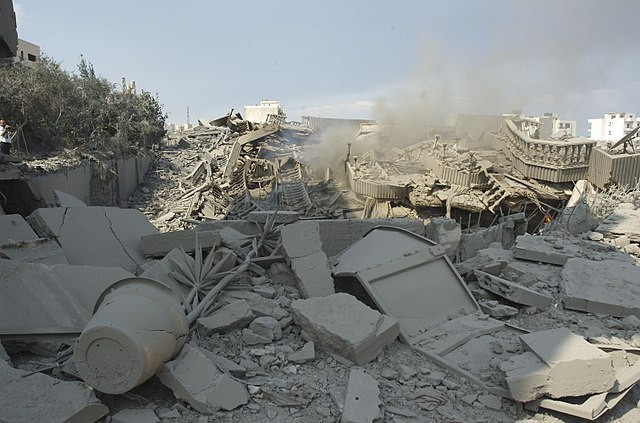Israel launched a wave of overnight airstrikes on the southern suburbs of Beirut, including the Dahiyeh neighborhood, marking one of the heaviest bombardments in the region since hostilities with Hezbollah reignited last month. The air raids destroyed several buildings across multiple neighborhoods, Lebanon's National News Agency reported, though there was no immediate confirmation on casualties. The escalation comes as international mediators, led by the United States, attempt to negotiate a ceasefire between Israel and Iran-backed groups Hezbollah and Hamas.
The strikes on Dahiyeh, a densely populated Hezbollah stronghold, follow intensified Israeli air operations across southern Lebanon, including Baalbek, where a cultural organization reported visible damage to UNESCO-listed Roman ruins. The escalation has stymied diplomatic efforts, and Lebanon's caretaker Prime Minister Najib Mikati decried what he called "Israeli stubbornness," accusing Israel of "rejecting proposed solutions and insisting on the approach of killing and destruction."
In a separate strike, Israel bombed the outskirts of Qamatiyeh, a mountain town southeast of Beirut, killing three people and wounding five, according to Lebanon's Health Ministry. While the ministry provided limited details, an Associated Press journalist reported minor damage to an apartment in nearby Ein al-Rummaneh, suggesting the strike's proximity to civilian infrastructure.
Israel's recent wave of bombings, particularly in Lebanon and Gaza, has been accompanied by evacuation orders for residents of ten neighborhoods in Beirut's southern suburbs. According to Reuters journalists, at least ten airstrikes targeted these areas early Friday, marking the first bombardment in nearly a week. The strikes unfolded just as Washington's peace initiative faltered, underscoring the mounting obstacles to any lasting ceasefire ahead of the U.S. presidential election next week.
Israel's military has also ramped up its offensives in Gaza, where over 43,000 Palestinians have been killed since the conflict with Hamas began last year, Palestinian officials report. The conflict ignited on October 7, 2023, when Hamas-led militants launched an unprecedented assault on Israel, killing around 1,200 people, primarily civilians, and taking 251 hostages. Israel's retaliatory strikes have since leveled large portions of Gaza, reducing neighborhoods to rubble.
Addressing Israeli troops on Thursday, Prime Minister Benjamin Netanyahu underscored Israel's firm stance. "Agreements, documents, proposals are not the main point," he said, reaffirming the country's determination to continue its military response.
In Israel, civilian casualties continue to rise due to cross-border attacks. A recent Hezbollah rocket strike on the town of Metula killed five individuals, including four Thai workers and an Israeli farmer, according to Israeli authorities. Additionally, two civilians near Kiryat Ata were killed by shrapnel from another Hezbollah attack. Hezbollah has stated that it targets only military installations, though casualties have spilled over into civilian areas, exacerbating regional tensions.
The conflict's impact has been keenly felt in Lebanon, where the Health Ministry reports more than 2,800 Lebanese fatalities since October 8, when Hezbollah began launching rockets in response to Israeli strikes on Gaza. Civilian anger is mounting in Lebanon, with residents voicing frustration over what they describe as indiscriminate bombings. "This is a brutal war, and Israel does not have the right to do this," Hassan Saad, a Lebanese citizen, told Reuters from a street in Beirut. "There must be a limit put for Israel because Israel does not abide by any of the laws or human morality."
Another resident, Ali Ramadan, speculated that Israel's intensified airstrikes are meant to apply pressure on Lebanon amid ceasefire talks. U.S. diplomatic efforts continue, but the protracted violence has hindered meaningful progress. Meanwhile, Lebanese leaders are calling for restraint, warning that the ongoing strikes could destabilize the region and deepen the humanitarian crisis already straining Lebanon and Gaza.




